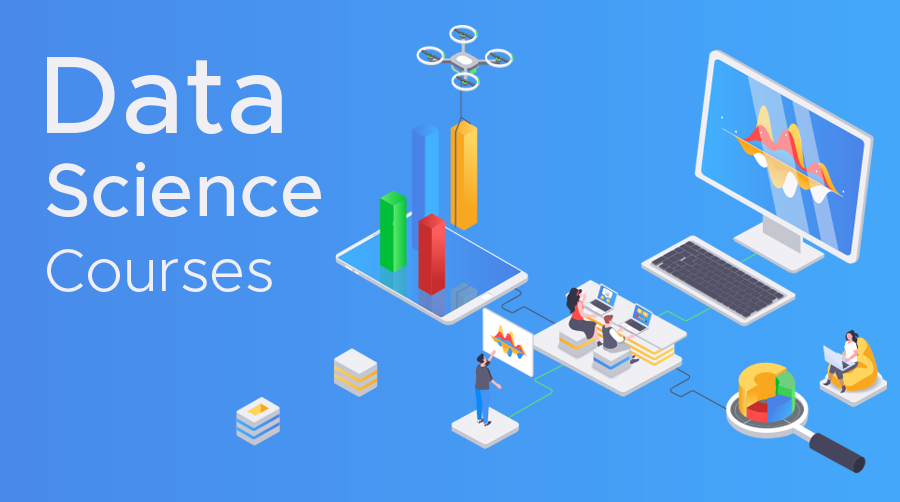Guide to Data Science Diploma Courses After Graduation

Data science has become an essential field in today’s job market, with increasing demand for professionals who can analyze and interpret large volumes of data. Pursuing a diploma course in data science after graduation can provide individuals with the necessary knowledge and skills to succeed in this field. In this article, we will discover the best data science courses online or classroom, after graduation, including understanding what diploma courses entail, the top diploma courses, the criteria for selecting a course, preparation for the course, and the benefits of pursuing a diploma course in data science.
Table of Contents
Market Scope of Data Science
Data science has become a critical component of many industries, including healthcare, finance, retail, and technology. As a result, the global market for data science has seen significant growth in the past few years and is sure to continue to expand in the coming years.
According to a report by MarketsandMarkets, the global data science platform market size is sure to grow from $37.9 billion in 2020 to $140.9 billion by 2025 at a compound annual growth rate (CAGR) of 30.0% during the forecast period. The report attributes the growth of the market to the increasing demand for data science tools and platforms to extract insights from large volumes of data and the rising adoption of cloud-based data science platforms.
According to the study, North America is anticipated to account for the highest share of the market for data science platforms during the projected period due to the presence of significant industry players and the region’s widespread use of advanced technology. However, due to expanding investments in data science and the demand for data-driven decision-making processes in emerging economies like China and India, the Asia Pacific region is expected to grow at the highest CAGR over the projected period.
In terms of applications, the healthcare and life sciences segment is expected to hold the largest share of the data science market, owing to the increasing adoption of data science in drug discovery and clinical research. However, the banking, financial services, and insurance (BFSI) segment is anticipated to grow at the highest CAGR during the calculated period, owing to the increasing adoption of data science for fraud detection, risk management, and customer analytics.
Understanding Data Science Diploma Courses
- Definition of a data science diploma course: A data science diploma course is a post-graduate program that offers learners a comprehensive understanding of data science concepts and tools. The course typically covers topics such as statistics, machine learning, programming languages, and data visualization.
- Curriculum and course content: The curriculum and course content of a data science diploma course can vary depending on the institution. However, most courses cover foundational concepts such as probability and statistics, data visualization, and machine learning.
- Duration and format of the course: The duration and format of a data science diploma course can vary depending on the institution. However, most courses are designed to be completed in 6-12 months and can be completed online or in-person.
- Prerequisites and eligibility criteria: Prerequisites and eligibility criteria for data science diploma courses can vary depending on the institution. However, most institutions require a bachelor’s degree in a related field, such as computer science, mathematics, or statistics.
Top Data Science Diploma Courses
- Overview of top data science diploma courses: Some of the top data science diploma courses include the Data Science online course with placement offers by Great Learning, Post-Graduate Diploma in Data Science and Machine Learning by IIIT Bangalore, the Advanced Diploma in Data Science by Jigsaw Academy, and the Diploma in Data Science by Manipal ProLearn.
- Course content, duration, and format of each course: Each course covers topics such as statistics, machine learning, and data visualization. The duration of the courses varies from 6-12 months, and they can be completed online or in-person.
- Institutions offering the courses: The courses are offered by various institutions, including IIIT Bangalore, Jigsaw Academy, and Manipal ProLearn.
- Comparison of the courses: The courses vary in terms of curriculum, duration, and format, and individuals should consider their needs and goals when selecting a course.
Criteria for Selecting Data Science Diploma Courses
- Accreditation and recognition of the institution: It is essential to select a course offered by an accredited and recognized institution to ensure the value and credibility of the diploma.
- Curriculum and quality of instruction: The curriculum and quality of instruction of the course should be evaluated to ensure that it covers necessary topics and provides a comprehensive learning experience.
- Cost and duration of the course: The cost and duration of the course should be evaluated to ensure that it fits the individual’s budget and schedule.
- Reputation and an alumni network of the institution: The reputation and alumni network of the institution should be evaluated to ensure that the diploma provides opportunities for networking and career advancement.
- Flexibility and convenience of the course: The flexibility and convenience of the course should be evaluated to ensure that it fits the individual’s lifestyle and learning preferences.
Preparation for Data Science Diploma Courses
- Educational qualifications and technical skills: It is essential to have educational qualifications and technical skills in related fields such as computer science, mathematics, or statistics.
- Relevant work experience and internships: Relevant work experience and internships can help individuals understand the practical applications of data science concepts.
- Prerequisite courses and self-study materials: Prerequisite courses and self-study materials can help individuals prepare for the diploma course.
Preparation and Study Materials for the Course
To prepare for a data science diploma course after graduation, individuals can take several steps to ensure that they have the necessary knowledge and skills to succeed in the course. Some of the preparation steps and study materials that individuals can use include:
- Educational qualifications and technical skills:
Having a strong foundation in related fields such as computer science, mathematics, or statistics is crucial for success in a data science diploma course. Individuals should have a solid understanding of computer programming languages such as Python and R, as well as experience working with data analysis tools.
- Relevant work experience and internships:
Relevant work experience and internships can help individuals understand the practical applications of data science concepts. Hands-on experience in data analysis and visualization can provide individuals with the necessary skills and knowledge to succeed in a data science diploma course.
- Prerequisite courses and self-study materials:
Many data science diploma courses require prerequisite courses in statistics, mathematics, and programming languages. Individuals can take online courses or attend workshops to gain the necessary knowledge and skills to succeed in the diploma course. Self-study materials such as books, online tutorials, and YouTube videos can also be beneficial.
- Preparation and study materials for the course:
To succeed in a data science diploma course, individuals need to have the necessary study materials and resources. Many institutions provide textbooks, online resources, and study guides for students to use. Additionally, individuals can join online communities and discussion forums to connect with peers and ask for help with course materials.
Benefits of Data Science Diploma Courses
- Enhanced job opportunities and higher salaries:
Earning a data science diploma can increase job opportunities and lead to higher salaries. Many companies require data scientists to have advanced knowledge and skills in data science, and earning a diploma can provide individuals with a competitive edge in the job market.
- Professional recognition and credibility:
Earning a data science diploma can enhance an individual’s professional recognition and credibility. Employers and industry professionals recognize the value of advanced education in data science, and earning a diploma can demonstrate an individual’s commitment to their field.
- Opportunities for career advancement and specialization:
Earning a data science diploma can open up opportunities for career advancement and specialization. Individuals with advanced knowledge and skills in data science can take on leadership roles and specialize in domains such as artificial intelligence, machine learning, and data visualization.
- Staying up-to-date with the latest trends and advancements in the field:
Earning a data science diploma can help individuals stay updated with the latest trends, market scope, and advancements in the field. The curriculum of a data science diploma course is designed to cover the latest tools and technologies in data science, providing individuals with the knowledge and skills to succeed in a rapidly changing field.
Conclusion
Earning a data science diploma after graduation can provide individuals with the necessary knowledge and skills to succeed in a data-driven world. To select the right course, individuals should consider factors such as accreditation, curriculum, cost, and reputation of the institution. To prepare for the course, individuals can take prerequisite courses, gain relevant work experience, and use self-study materials. The benefits of earning a data science diploma include increased job opportunities, professional recognition, opportunities for career advancement, and staying up-to-date with the latest trends and advancements in the field. By considering the criteria and preparing adequately, individuals can set themselves up for success in a data science diploma course after graduation.




